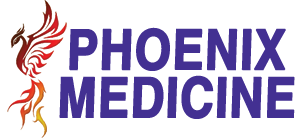Rather than medicine focused on curing sickness and disease, this proactive, lifestyle medicine is focused on the prevention of disease.
Preventive Medicine
While physicians are traditionally taught to treat acute illness, there is not much education on the prevention of disease. Physicians are taught to treat heart attacks and adult-onset diabetes but not how to prevent these events from occurring.
A common critique of American healthcare is that it has forsaken the individual patient and has joined the ranks of big business. The US spends more on healthcare than any other nation, yet ranks below twentieth in quality of health. People are unhealthier while taking more medications, which results in, among other things, huge profits for pharmaceutical companies. Furthermore, if a medication (or protocol) is not patentable, there is no money put into testing and marketing, it is kept out of mainstream literature, and it is frequently maligned. There is no money to be made if we are healthy (or dead); our healthcare system is sustained by the presence of disease.
The medical subspecialty that treats hormone diseases is endocrinology. Yet there is no medical training in hormone deficiency that does not cause disease, and no subspecialty that addresses prevention of disease due to inadequate hormone levels. The approach of Preventive Medicine is to take patients (before they are ill) and optimize their health in order to prevent disease; first recognizing the symptoms of hormone imbalance, which typically precede a slow decline in health, and then correcting those levels before the patient advances to illness.
Illness or accident can shorten our lifetime but we can just as effectively shorten it with our lifestyle choices. Techniques to slow the aging process include the avoidance of disease risk factors and the pursuit of optimum nutrition, adequate exercise, caloric restriction, antioxidant therapy, and hormone replacement. Preventive medicine can be considered the process of achieving optimal health.
Preventive medicine is about making people as vital, functional, happy, and active as they can be. It’s about maximizing their potential.
“As doctors, we must have the courage to make more time for our patients, treat patients instead of blood tests, concentrate more on preventive medicine, think twice before we prescribe medications or synthetic hormones, and quit bowing to the powerful influence of pharmaceutical companies. Furthermore, we should have the courage to include alternate therapies without hesitation in treating and diagnosing patients, and use natural, bio-identical substances that cannot be patented.”

